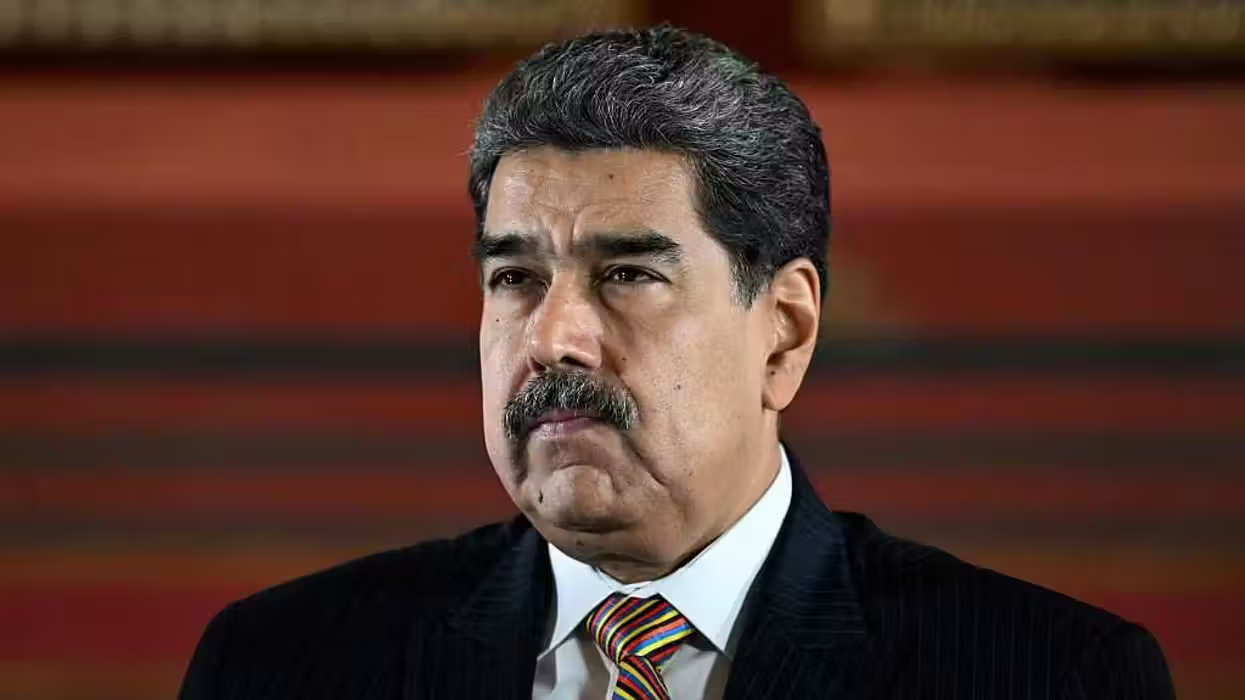
© 2026 Blaze Media LLC. All rights reserved.
Marshall County, Alabama, is a tiny rural American county of fewer than 100,000 people. Its county seat, Guntersville, is home to just 8,000. It’s a place you’d see depicted in Norman Rockwell’s America. At first glance, the last things one would associate with this area are the cultural and crime problems of the bigger cities. Unfortunately, thanks to endless illegal immigration fed into this and similar counties throughout the nation by selfish agricultural interests seeking nothing more than cheaper labor, these counties may as well be located in El Salvador or Mexico.
In a free-wheeling discussion on my podcast Friday on how agricultural interests have created overlooked criminal and cultural problems in rural America, Alabama Attorney General Steve Marshall shared an alarming statistic. “I had a chance when I was DA [in Marshall County] to testify in front of the federal civil rights commission. We were talking about the issue of illegal immigration, and one thing I shared with them was a statistic – that at that time, roughly 80 percent of those who were committing and arrested for drug trafficking in our county were there unlawfully.”
Prior to becoming attorney general of Alabama in 2017, Steve Marshall was DA of this small rural county in the northeastern part of the state for 16 years. He noted how the cartels now have their operatives in our rural communities. “There’s a direct connection between them and those from the cartel. And so not only do we see that direct line from the relationships in Mexico to be able to bring drugs in our community, but also we see these other offenses.”
We discussed the case of Felipe Juan Miguel, a recent arrival from Guatemala, who was arrested in Marshall County in July for sexually molesting a child. Marshall County has chicken farms, and many of these Central Americans are brought there to work on the farms. It has received more “unaccompanied” alien minors being illegally reunited with their parents than any other county in the state except for Jefferson (Birmingham). Yet as the political and business leaders focus on cheap crops in a vacuum, they overlook the cultural and security problems they are now bringing to our rural communities – child molestation, drug trafficking, and drunk driving.
“And that's why when we talk about building the wall, when we talk about securing that border, it's not just a California, Arizona, and Texas issue,” observed Marshall. “It is a national issue.”
Destroying rural America for cheaper tomatoes
Many Americans look to our small towns and rural areas as a refuge from some of the criminal problems in the larger cities, yet if agricultural interests are allowed to continue bringing in other countries’ criminals, rural areas might have it worse in the end.
Yesterday, Beth Warren of the Louisville Courier Journal posted an enthralling and detailed report on how El Mencho’s Cártel Jalisco Nueva Generación (CJNG) has penetrated many of our rural communities in Kentucky and all over the country with its drug trafficking network. However, an otherwise well-researched article largely glosses over the fact that reason trafficking can blend into these areas is because of the endless stream of illegal immigrant labor serving as both willing and reluctant traffickers for the cartels.
Warren portrays the immigrants in a better light and reports on concerns that “Hispanic workers find themselves looked at with suspicion because of political rhetoric that brands the drug trade and immigration as one and the same.” Nonetheless, she inadvertently gives away the farm, writing that “the cartel exploits its connections with otherwise hard-working immigrants.” Hence, the illegal alien laborer pipeline of drugs, gangs, and crime into Norman Rockwell’s America.
In reality, if we didn’t have these illegal immigrant laborers at all, we wouldn’t have such an effective conduit through which the cartels can exploit and “use local traffickers who can blend in to sell their drugs,” as Warren notes. It’s true that at lower levels, Americans also work for the cartels, but most of the primary trafficking is done by criminal alien networks, which could be disrupted if we enforced our immigration laws,.
Attorney General Marshall agreed with this assertion based on what he’s seeing in Alabama. “The way that the structure of those organizations work is typically those with the connection back across the border are at the highest level, and then there are local people individually to help them in the distribution.”
One of the areas highlighted in Beth Warren’s report on CJNG’s rural cells is south-central Virginia. This area has been flooded with illegal alien agriculture workers. Jessica Vaughan, who has studied interior immigration enforcement for decades at the Center for Immigration Studies, told me this is an ongoing problem she hears from law enforcement. “People love these illegal workers during the day, but it’s at night when they cause all the problems for me,” lamented one gang detective who works with the state troopers in that part of Virginia in a conversation with Vaughan.
She added that she has seen over and over again how their employers express shock when discovering their workers are transnational criminals and invariably say, “But he was such a hard worker.”
“Yes, he worked hard in the day, but also worked hard at his crime too,” added Vaughan wryly.
In Warren’s comprehensive Courier Journal article, she profiles Ciro Macias Martinez as the poster child for El Mencho’s success in covering rural America with drug trafficking. “There, amid the lush pastures and white rail fences, a Mexican immigrant with a sinister secret quietly groomed prized thoroughbreds at historic Calumet Farm, according to court records. … Macias directed the flow of $30 million worth of heroin, cocaine, ecstasy, crystal meth and fentanyl from Mexico to Kentucky's two largest cities: Lexington and Louisville.” The number of drug deaths in the Bluegrass State has climbed to over 1,500 per year, and this man was likely responsible for many of them.
What she left out, though, was that Martinez is not an immigrant legally admitted to the country from Mexico. He is an illegal alien.
Immigration enforcement is the best and only form of drug control we haven’t tried
Why would we bring in these illegal aliens to work all over our country’s rural landscape to serve as a pipeline for the cartels and other criminal behavior? Even Warren in her long expose on CJNG reports how illegal aliens are being blackmailed to traffic drugs in order to pay off debts to the cartels or that “CJNG members often threatened violence — to them or their loved ones back in Mexico.” But the answer to this is not to have more “sympathy” for them and bring in even more to get exploited; it’s to have more sympathy for American taxpayers and bring in fewer illegal aliens.
Last month, Brian Ishmael, a sheriff’s deputy in El Dorado, California, was murdered when he was ambushed by an illegal alien at a marijuana growing site for a cartel in a rural area. What is happening there? Sheriff John D’Agostini put it best: “If you allow criminally minded illegal aliens to infiltrate our communities with more protections than our average citizens, they will take advantage of that and victimize our communities.”
The agriculture lobby certainly has the largest hand in the illegal aliens’ infiltration of rural communities, thereby allowing criminal networks to blend in when they otherwise would be exposed. Thus, illegal immigration is both saturating rural communities with crime and fueling the drug crisis.
As Massachusetts U.S. Attorney Andrew Lelling said on my podcast earlier this month, “You obviously have to have networks of people in the United States, and they are often stocked with illegal immigrants to distribute these drugs.” He noted that in his state it is mainly “the illegal immigrant Dominican community in Massachusetts” driving the heroin and fentanyl trafficking. A recent report from the Massachusetts Department of Public Health showed that fentanyl was involved in 93 percent of opioid fatalities during the first half of 2019.
The bottom line is that we’ve tried everything except for actually enforcing immigration laws, which sit at the center of this entire problem. A war on items doesn’t work, but a war on bad people does.
“And what it really boils down to is border security would help both problems,” said Lelling. “So, if border security vis-à-vis immigration was better, it'd be harder to get into the United States as an illegal Dominican immigrant, and if border security vis-a-vis drugs was better than it would be tougher to get the drugs into the United States. Thus, it would help both problems.”
When it comes to drugs, it all gets back to the border. Until we enforce our sovereignty and deal with the cartels the same way we would terrorists, not only is every major city a border town, but every tiny county is as well … all for tomatoes that are ten cents cheaper. Where, then, will Americans go for our place of refuge?
#mc_embed_signup{background:#fff; clear:left; font:14px}
/* Add your own MailChimp form style overrides in your site stylesheet or in this style block.
We recommend moving this block and the preceding CSS link to the HEAD of your HTML file. */
Want to leave a tip?
We answer to you. Help keep our content free of advertisers and big tech censorship by leaving a tip today.
Want to join the conversation?
Already a subscriber?
Blaze Podcast Host
Daniel Horowitz is the host of “Conservative Review with Daniel Horowitz” and a senior editor for Blaze News.
RMConservative
Daniel Horowitz
Blaze Podcast Host
Daniel Horowitz is the host of “Conservative Review with Daniel Horowitz” and a senior editor for Blaze News.
@RMConservative →more stories
Sign up for the Blaze newsletter
By signing up, you agree to our Privacy Policy and Terms of Use, and agree to receive content that may sometimes include advertisements. You may opt out at any time.
Related Content
© 2026 Blaze Media LLC. All rights reserved.
Get the stories that matter most delivered directly to your inbox.
By signing up, you agree to our Privacy Policy and Terms of Use, and agree to receive content that may sometimes include advertisements. You may opt out at any time.






